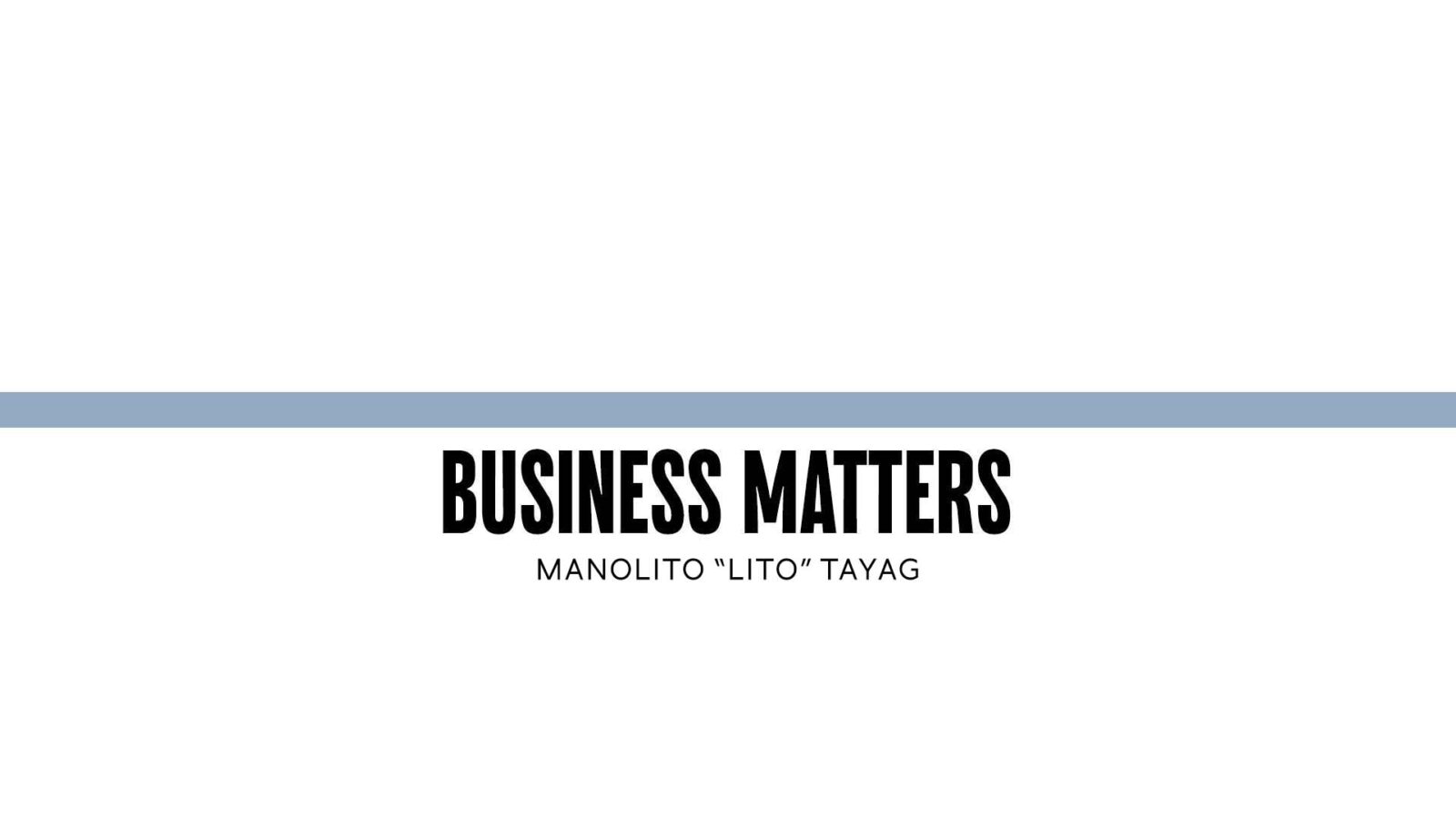A business-led future for PH agriculture

The Philippine economy grew by 5.5 percent in the second quarter of 2025, averaging 7.16 percent for the last five years. While the agriculture sector posted a remarkable 7-percent growth in the same quarter, its strongest performance in years, the average growth for the past five years is just 1 percent. The sector faces structural challenges and comprises only a modest share of the overall economy. Filipino households continue to spend more than 55.4 percent of their budget on food every month, higher than their peers in Asia. And the reality for Filipino farmers is that they remain among the region’s poorest. This is a tragic paradox. But it is also a missed opportunity.
For too long, agriculture has been seen as a social development concern. It is time we look at it differently: an economic development concern and a vital investment opportunity. A productive agriculture sector boosts food security, stabilizes inflation, reduces poverty, and creates wealth.
The private sector has a central role to play. Business holds the very tools that agriculture needs to thrive: capital, logistics, technology, and access to markets. These are the same tools that grew and modernized other sectors. Businesses should engage in agriculture beyond corporate social responsibility and through direct investment. Direct investment can increase productivity, reduce costs, optimize supply chains, and stabilize prices. Business provides the executional power, scale, and innovation. The private sector fills critical gaps in infrastructure, financing, technology, and governance, while unlocking new value in a sector long considered unprofitable, thereby creating growth opportunities.
And we know the calculus of growth and progress. As farmers’ incomes rise, they become the customers of a new market segment—for consumer goods, financial services, housing, and digital products. Investing in agriculture opens the door to rural markets that are too often overlooked. Agriculture becomes the pathway to inclusive rural development.
This is not just charity. It is a smart business strategy. It is a business fulfilling its responsibility to a sector long neglected.
And this is not pure theory. We have seen what is possible when business steps up.
At Universal Leaf Philippines, Winston Uy’s team works with tens of thousands of tobacco farmers, offering financing, technical support, digital crop tracking, and, more importantly, fair prices. The result is higher-quality output, better incomes, and improved lives for tobacco farming families.
In Leyte, Rachel Tan and Patrick Renucci built one of Southeast Asia’s most advanced rice production systems. They provided farmers with modern seeds, training, and in-kind loans. Yields jumped from 2 to 10 tons per hectare. Their product—Dalisay Rice—placed third at the World Rice Conference.
Agri-tech startups are emerging with promising tools to modernize farming—from digital marketplaces and crop forecasting to mobile apps that offer real-time advice on planting, smart irrigation, pests, and weather. Mayani and Agro-Digital Technologies are using technology to help farmers increase productivity and connect to better markets.
With the right capital and partnerships, these and other proven innovations can be replicated rapidly to benefit millions of smallholders. These aren’t isolated stories. They are models that can be scaled, adapted, and replicated across regions and crops.
At Makati Business Club, we encourage members to explore how they can plug in to modernize farming, improve the lives of farmers, and contribute to food security. We have identified several concrete engagement models:
- Adopt cooperatives to bring management capability to farmer organizations;
- Accelerate application of proven agriculture technology;
- Open direct sourcing of agricultural products to consolidate and stabilize demand;
- Build optimal agriculture supply chains;
- 5. Directly invest in proven companies or replicate successful business models.
- In parallel, MBC advocates for more effective implementation of government policy and support programs for agriculture and the farmers.
The business community needs to step up for the agriculture sector, which is direly in need of support. Businesses should unlock agriculture’s full potential as a significant sector of the economy. It is time to shift our mindset from aid to investment, from handouts to partnerships, from isolation to integration. By building a modern and sustainable agricultural value chain, we help ensure food security and farmer prosperity—while creating new markets. The farmers are ready. The opportunity is clear. It is time for business to roll up its sleeves for a much-needed win for all.
——————
Manolito “Lito” Tayag is a member of MBC’s board of trustees and is the vice chair of Philippine Business for Social Progress (PBSP). He leads MBC’s agriculture committee.
——————
Business Matters is a project of the Makati Business Club (makatibusinessclub@mbc.com.ph).





















Southeast Asia’s resurging nationalism